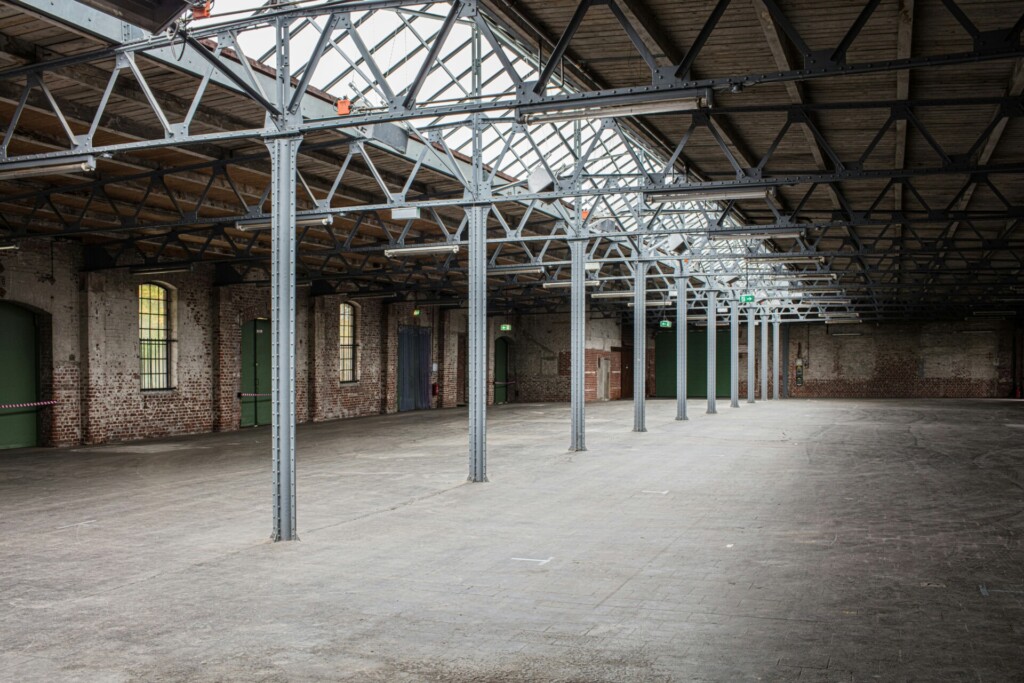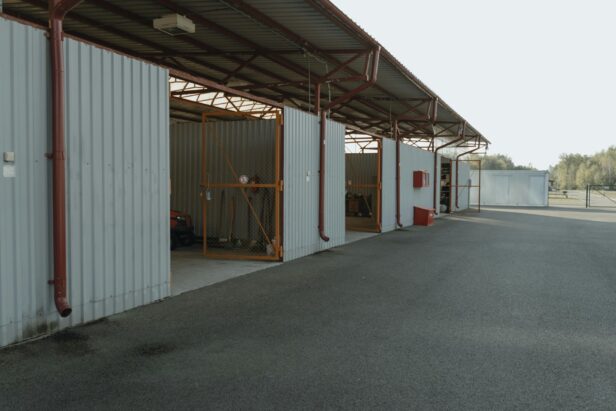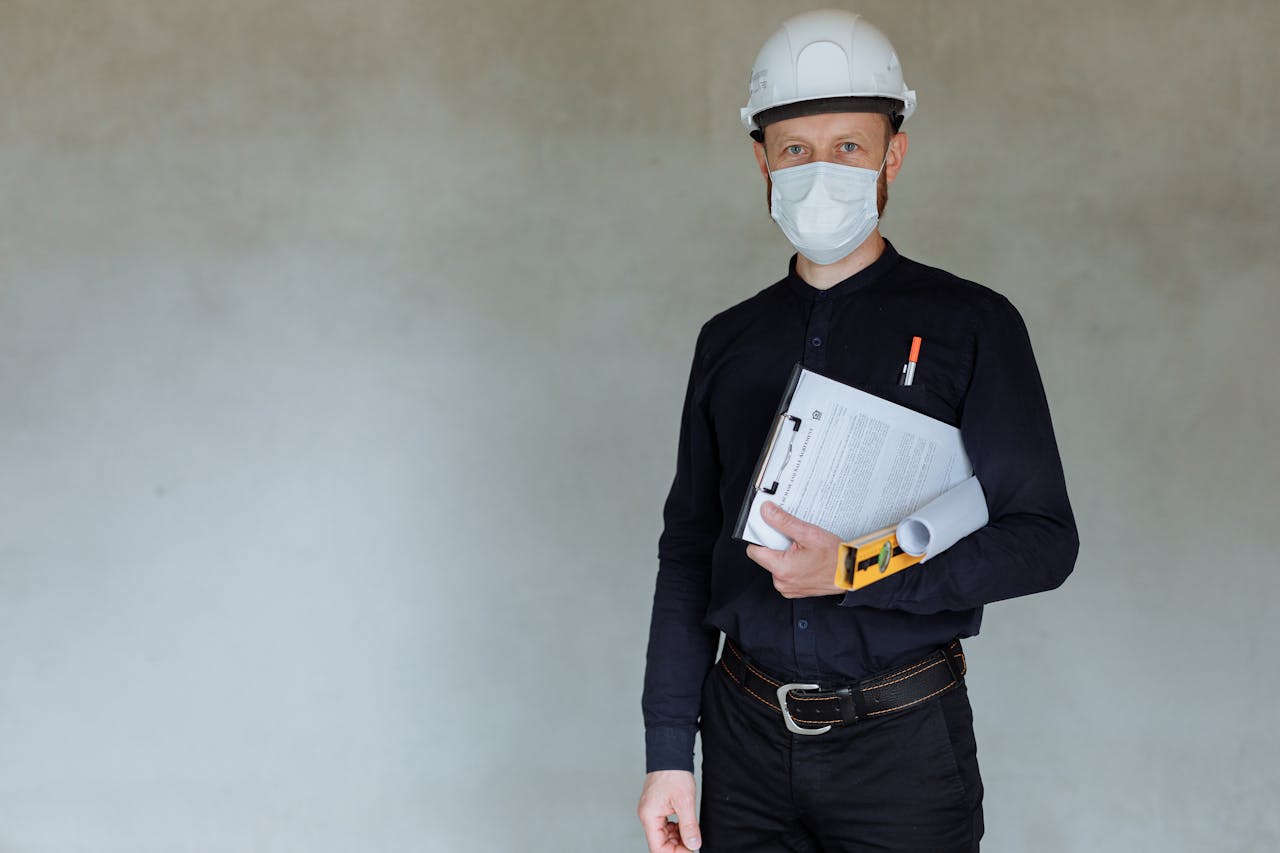Small warehouse construction in Dallas offers businesses versatile solutions for building distribution centers, storage facilities, or light manufacturing operations. The Dallas market provides excellent opportunities for warehouse development, with experienced contractors like Greystone Construction, who specialize in industrial and warehousing projects. These professionals deliver a range of building types tailored to specific business needs.
Each building type has distinct advantages, allowing businesses to select the most suitable option based on budget, timeline, and operational requirements. Tilt-wall and precast concrete provide durability and quick assembly, while pre-engineered metal buildings offer cost-effective flexibility. Wood-framed structures can be ideal for smaller warehouse needs with a more traditional aesthetic.
By partnering with knowledgeable local contractors, businesses can effectively address Dallas’s unique climate considerations and zoning regulations to create efficient, code-compliant warehouse spaces. The right construction approach ensures optimal functionality, whether for storage, distribution, or light manufacturing purposes.
What Materials Are Most Cost-Effective for Warehouse Construction in Dallas?

Steel frames are among the most cost-effective materials for warehouse construction in Dallas, offering significant advantages in terms of affordability and performance. Here’s a comparison of the main construction methods:
- Steel frames: $10-$20 per square foot
- Stud frames: $20-$40 per square foot
- Tilt-up concrete: $25-$40 per square foot
Steel buildings provide several key benefits that make them particularly well-suited for warehouse projects in the Dallas area:
- Durability – Steel structures can last 50-100 years with proper maintenance
- Fast installation – Prefabricated components allow for quick on-site assembly
- Recyclability – Steel is 100% recyclable, improving sustainability
- Easy expansion – Steel frames can be readily modified to accommodate future growth
- Climate resistance – Metal buildings withstand Dallas’s heat and severe weather well
Pre-engineered metal buildings have become increasingly popular for small to mid-sized warehouse projects. They offer an optimal balance of affordability, design flexibility, and longevity. Standardized engineering also helps streamline the permitting process compared to custom designs.
For larger warehouse facilities over 100,000 square feet, tilt-up concrete construction may become more economical despite the higher square foot cost. The economies of scale and reduced steel requirements can make tilt-up competitive for major distribution centers.
Ultimately, steel frame construction provides the most cost-effective solution for many warehouse projects in Dallas, especially in the 20,000 to 100,000 square foot range. However, we recommend getting detailed quotes for your specific project parameters, as costs can vary based on design complexity, site conditions, and current material prices.
How Much Does Small Warehouse Construction Cost in Dallas?
Warehouse construction costs in Dallas can vary significantly based on size, materials, and specific features required. For small warehouses, we typically see the following cost ranges:
A 1,200 square foot (30×40) warehouse in Dallas costs approximately $25,000 to $35,000 for a basic build. Larger 50,000-60,000 square foot distribution centers range from $750,000 to $1 million, depending on complexity and amenities.
Looking at costs per square foot, the average for warehouse construction in Texas falls between $225-$315. The Dallas-Fort Worth area tends to be competitive within this range due to the availability of construction resources in the region.
When budgeting for warehouse construction, we generally advise clients to allocate their funds as follows:
- 70% to hard costs (structure, roofing, flooring)
- 10-15% to soft costs (permits, legal fees, design)
- 5-10% to operational costs (utilities setup, initial maintenance)
This breakdown helps ensure all aspects of the project are adequately funded. These percentages can shift based on your specific warehouse requirements.
It’s important to note that while initial construction costs are significant, considering long-term operational expenses is crucial. Energy-efficient designs or sustainable materials may increase upfront costs but lead to substantial savings over the warehouse’s lifetime.
When planning your warehouse project in Dallas, we recommend getting detailed quotes from multiple contractors. This allows you to compare costs and ensure competitive pricing for your specific build.
By thoroughly planning your warehouse construction and working with experienced local contractors, you can optimize your budget while meeting all your operational needs. Remember, the cheapest option isn’t always the most cost-effective in the long run – focus on value and functionality to get the best return on your investment.
What Zoning and Permit Requirements Apply to Warehouse Construction in Dallas?

When undertaking warehouse construction in Dallas, we must adhere to specific zoning regulations and permitting processes to ensure compliance. The city classifies warehouses under ‘Wholesale, Distribution, and Storage Uses’, which includes various facility types such as mini-warehouses, office showroom/warehouses, and standard warehouses.
As general contractors, our first step is to verify that the proposed warehouse project aligns with Dallas’s zoning codes. This involves reviewing the property’s zoning designation and permitted uses. We coordinate closely with the city’s Development Services department to confirm zoning compliance and identify any special requirements or restrictions that may apply to the specific site.
Once zoning is confirmed, we focus on obtaining the necessary construction permits. The permitting process in Dallas can be complex, requiring thorough documentation and multiple reviews. We typically need to submit detailed site plans, architectural drawings, and engineering specifications. The city’s plan review process examines various aspects including structural integrity, fire safety measures, accessibility compliance, and environmental considerations.
To streamline the process, we often recommend scheduling pre-development meetings with Dallas city officials. These consultations allow us to address potential issues proactively and gain clarity on specific code requirements relevant to warehouse construction. This approach can significantly reduce the risk of delays or costly revisions during the formal review process.
Throughout construction, we coordinate closely with Dallas building inspectors to ensure ongoing compliance. Warehouse projects typically require multiple inspections at key stages, including foundation work, framing, electrical and plumbing rough-ins, and final occupancy approval. Our team maintains detailed documentation of these inspections and promptly addresses any compliance issues that arise.
By prioritizing zoning and permit compliance from the outset, we help our clients avoid costly setbacks and ensure their warehouse projects meet all necessary Dallas city standards. Our experience navigating local regulations allows us to anticipate potential hurdles and develop effective strategies to keep warehouse construction projects on track and in full compliance with city requirements.
What Are the Current Construction Timelines and Material Lead Times in Dallas?
Warehouse construction timelines in Dallas vary widely based on the project’s scope and complexity. Smaller, straightforward warehouses may be completed in as little as 48 hours for prefabricated structures, or up to approximately 3 weeks for more customized builds. Larger or more intricate warehouse projects naturally demand extended timeframes.
Material lead times remain a critical factor influencing construction schedules in the Dallas market. Although there has been some improvement from the significant delays seen during the peak of the pandemic, challenges persist. Currently, electrical equipment and HVAC systems experience lead times two to three times longer than pre-pandemic levels. This can significantly impact overall project timelines if not properly accounted for during planning.
To keep warehouse construction projects on track, it is advisable to work closely with experienced contractors who have established supplier relationships and can provide realistic timeline estimates. Additionally, placing orders for long lead-time items as early as possible can help mitigate potential delays. By taking a proactive approach to procurement and scheduling, we’re able to navigate supply chain uncertainties more effectively.
Construction timelines and material availability can fluctuate quickly in today’s market. We continuously monitor industry trends and maintain open communication with suppliers to provide the most up-to-date information to our clients. This allows us to develop agile project plans that can adapt to changing conditions while still meeting key milestones and deadlines.
Ultimately, successful warehouse construction in Dallas requires careful planning, strategic procurement, and the flexibility to adjust to market realities. By leveraging our extensive experience and network in the Dallas construction industry, we’re able to navigate these challenges and deliver projects efficiently, even amid ongoing supply chain pressures.
Conclusion: Planning Your Small Warehouse Construction Project in Dallas

To successfully build a small warehouse in Dallas, careful planning, thoughtful material selection, and partnering with experienced contractors are essential. By understanding the costs, timelines, material options, and regulatory requirements specific to Dallas, businesses can make informed decisions throughout the construction process.
We’ve covered the key considerations for warehouse construction, from evaluating your space needs to selecting cost-effective materials like steel framing. The unique climate and business environment in Dallas present both opportunities and challenges that we’re well-equipped to handle. With our expertise in design-build construction, we can optimize your warehouse layout for efficiency while ensuring compliance with local building codes.
As you proceed with your project, remember that thorough planning in the early stages yields benefits later. Take time to clearly define your operational requirements, research potential sites, and establish a realistic budget and timeline. Partnering with an experienced local contractor who understands the Dallas market is crucial for keeping your project on track.
While warehouse construction can seem daunting, you now have the foundational knowledge to approach your project with confidence. Whether you’re building a small storage facility or a mid-sized distribution center, Dallas offers a favorable environment with competitive pricing and established construction partners ready to bring your vision to life.
If you’re ready to take the next step in your warehouse construction journey, we invite you to contact EB3 Construction for a consultation. Our team of experienced professionals is here to guide you through the entire process, from initial planning to final build-out.




